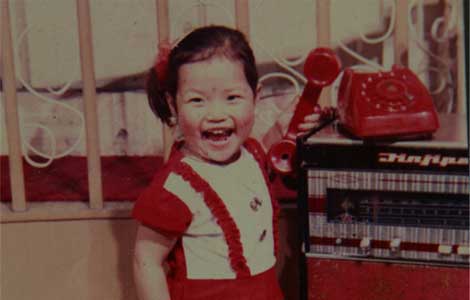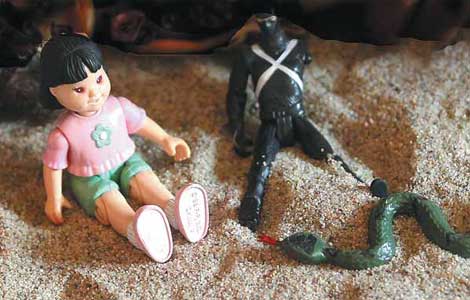Shelter shows mental health is key to recovery
Updated: 2014-01-29 08:06
By Cang Wei and Song Wenwei in Nanjing (China Daily USA)
|
||||||||
A homeless shelter in Suzhou has brought in trained psychologists to help vagrants get back on their feet.
People dropped off by police or social workers are now asked to complete a questionnaire designed by a professional agency to assess their mental health.
"Based on that information, psychologists will sit down with them to discuss long-term solutions, especially young people," deputy director Wen Hailan said.
Yang Xiaochun, a worker at the shelter, added: "We've helped minors aged 7 to 17. It's not easy." For various reasons, many in this age bracket have difficulty expressing the truth about their situation, Yang said.
Like most Chinese homeless assistance centers, the shelter in Suzhou - a popular tourist destination in Jiangsu province - only provided food and money for vagrants to return home. However, it was discovered that many left home again and even went on to commit crimes.
"After much discussion we decided to work with psychologists, as many vagrants have serious mental health problems" Wen said.
Xiao Ying sat motionless for days when she arrived at the shelter. No matter how hard workers tried to communicate with the 17-year-old, she refused to say a word.
In the end, the shelter turned to the Sun Kiss Psychological Center for help.
One psychologist, after trying in vain to talk with Xiao in a soft voice, took two chairs outside and suggested she enjoy the sunshine. This lasted for several days before she gradually revealed she had been abducted and sold to several people before being rescued by police.
With the information provided by Xiao, workers were able to find her family and send her home.
According to Li Jun, director of the shelter's social work department, sometimes minors can be very aggressive and rebellious. One male employee was hit by a boy with a chair and had to have more than 10 stitches.
Every year the shelter helps about 400 minors.
A 15-year-old who often stole from relatives and acquaintances said when the workers called his foster mother in Guangzhou to take him home, she said she had given up on him.
However, the workers did not give up. They worked with psychologists, assessed his mental state and tried to build his confidence.
The shelter also made great efforts to change the mother's mind. They talked to her every day, and introduced a community center that would provide free services.
The boy finally became a volunteer for the community he lives in.
"Many minors have unhealthy value systems due to childhood, experiences and family situations," said Gu Yi at the Sun Kiss Psychological Center. "Their misbehavior, such as aggression, actually manifests their need for self-protection.
"What they need is necessary social interference and proper psychotherapy. Or else those minors may end up in prison."
Contact the writers at cangwei@chinadaily.com.cn and
songwenwei@chinadaily.com.cn
(China Daily USA 01/29/2014 page6)

 China welcomes Year of the Horse
China welcomes Year of the Horse
 Musical celebration of Fab Four anniversary
Musical celebration of Fab Four anniversary
 Nice day for a cool white wedding
Nice day for a cool white wedding
 Home-bound workers ease crowding in Beijing
Home-bound workers ease crowding in Beijing
 Putin pays tribute to Siege of Leningrad victims
Putin pays tribute to Siege of Leningrad victims
 Chinese ace Li Na before she was famous
Chinese ace Li Na before she was famous
 Xi visits soldiers on frozen northern border
Xi visits soldiers on frozen northern border
 Premier calls for action to relieve poverty
Premier calls for action to relieve poverty
Most Viewed
Editor's Picks

|

|

|

|

|

|
Today's Top News
China-themed malls a new trend in the Bay area
Replace dollar with super currency: economist
Japan should learn from Germany
Bird flu prompts countermeasures
Hotline on way for Chinese abroad
South China Sea archives open in Hainan
Some good advice for Japan on comfort women
US, UK in app-tapping scandal
US Weekly

|

|





